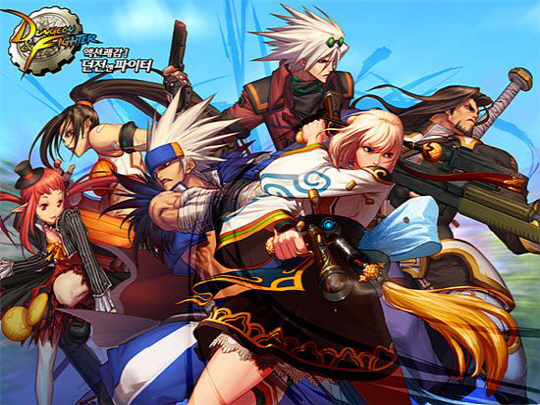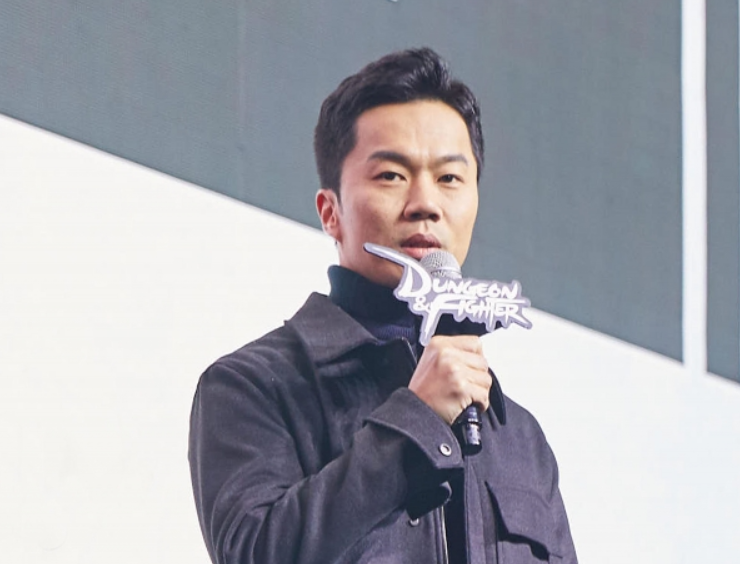Dungeon & Fighter Online (DnF) is an arcade-type, belt-scrolling game released in 2005, mixed with role playing (RPG) elements and an epic storyline. It is one of the most-played games with more than 700 million worldwide registered users as of May 2020. But with the game’s success has come controversy. One of the company’s Game Masters (GM) for this product, formed and sold game items for personal profit using their account privileges accessed through the game server. According to the GM’s record, the employee’s illegal actions were estimated to cost the company more than 50 million won. But the fallout from this is believed to be even greater as other GMs had also formed their own guild to create their own profits and conspire against the company. This incident, and others like it, have surfaced these days, raising concerns about confidence in the overall gaming market.
 |
| ▲ Dungeon & Fighter Online (DnF) is one of the most played games in the world with more than 700 million registered users. (Photo from Newdaily) |
The abuse of power by GMs is nothing new. “Maple Story 2’, ‘Elsword’, ‘Granado Espada’, and others had GM’s that profited off their roles. The difference is these games were not as popular as DnF. They were ‘flopped’ or ‘minor’ games while DnF is considered a ‘major’ game, making its impact far greater in the overall industry. Why is this case a problem? To understand the issue we need to discuss the Pay to Win structure first. In Korea, almost all online games use a Pay to Win structure in Free to Play (F2P) games. You need to buy items to enjoy the so-called main content when playing. It was originally a structure that applied to a handful of adult games such as Lineage, but it soon was applied to all similar styled games. Now it is common to see game items that cost as much as 1 million won. With this hefty price tag in play, it was inevitable game items would be copied using common computer code, so a more secure system and process was required. A system of regulation was implemented to secure the value associated with the purchased game goods and restore consumer confidence. However, the DnF scandal highlighted the fact that much more still needs to be done if companies are to restore trust in the game market as a whole. Overall consumers are becoming more and more skeptical about spending real-life money on simple chunks of code. It has led to growing opposition to the Pay to Win structure of most games. If this were to be discarded, it would totally upend the game import structure and system.
It is clear these crimes have caused great confusion in the gaming industry. However, ironically, there has been no changes in the market, including the operations of DnF. This is because there is no substitute for the game and while there are various users who enjoy games, only a small number of them make up the majority of the games profit creation. According to Pareto’s principle, the 80/20 rule, 80% of profit is made from 20% of the users. In other words, a majority of ordinary users have not lost anything as a result of this fraud, so they have no strong opinion on the matter. Also, users who have already paid in cash seem to enjoy the game even if the money they invested was a waste. In this regard, Nexon the company that manufactured DnF, suspended the director responsible, citing management negligence and compensated the impacted users. This decisive action worked in the company’s favor and led to an increase in users. However, Ha Tae-kyung, member of the Korean National Assembly, warned Nexon to shape up, as the incident had almost shaken the entire game market. However, for ordinary game users who are not interested in the politics of the situation, this case is considered a passing event.
 |
| ▲ Kang Jung-ho, director of 'Dungeon & Fighter Online (DnF)', posted a notice on the game website and said that he will make a thorough fact-finding the problem.(Photo from the kukmin Ilbo) |
Employee misconduct at ‘Dungeon & Fighter’ caused some initial confusion in the game market, but it did not lead to any significant changes in how F2P games operate. Fundamental problems in the gaming industry remain. However, if this level of corruption continues, trust and confidence in the game market will be lost. Therefore, gamers should be on the alert and actively express their opinions regarding the relevant legal systems and social issues surrounding their treasured industry. Users need to speak up to protect the style of play they have all grown to love before it is too late.
김민경, 류시은, 권유지 dankookherald@gmail.com

![[Campus Magnifier] Let's Surf the Library!](/news/photo/202404/12496_1765_4143.jpg) [Campus Magnifier] Let's Surf the Library!
[Campus Magnifier] Let's Surf the Library!
![[Campus Magnifier] Let's Surf the Library!](/news/thumbnail/202404/12496_1765_4143_v150.jpg)





